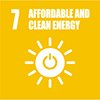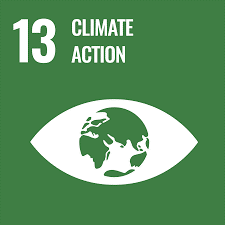Energy
Energy
THREE IMPACT AREAS
|
PROMOTING ENERGY
|
ENERGY TRANSITION AND
|
CLIMATE CHANGE
|
|---|---|---|
|
Promotion of energy efficiency at cross-sectoral level to achieve national and European objectives within 2030: optimization and technological upgrading of energy systems and processes, monitoring of existing projects, and dissemination of innovative solutions for the benefit of businesses, citizens, and public administration. Involvement of consumers through better understanding, information exchange, and market transformation on energy efficiency. |
Increase of production, supply and sale of energy from renewable sources. Use of local energy sources in compliance with applicable EU law and use of technologies with greater effect on the economic chain at a national level. Development of mature technologies and promotion of research and innovation. | Promotion of initiatives to reduce greenhouse gas emissions at a cross-sectoral level, through the development of shared strategies on different governance levels and the creation of sustainable and replicable solutions aimed at limiting the negative impacts of global warming. |
Overall, the shared-value ebitda deriving from activities within the “Pursuing carbon neutrality” driver is 319 million euros in 2024, or 20% of the total CSV ebitda.
In particular, with regard to the Promotion of Energy Efficiency (45.1 million euros), the shared-value ebitda is pursued through:
- industrial cogeneration;
- progressive energy efficiency in public lighting services, with particular reference to the extension of the number of municipalities where (i) only electricity from renewable sources is used, or (ii) the consumption of electricity per equivalent inhabitant is less than 50 kWh/inhab, or (iii) where all the managed light points are LED-powered;
- commercial offers to energy customers that incorporate services and tools to reduce consumption;
- energy efficiency services for condominiums, businesses and Public administration.
As regards the Energy transition towards renewables (274.3 million euros), this area includes the margins deriving from:
- sale of renewable electricity with Guarantee of Origin certificates (G.O.) and methane gas with greenhouse gas emissions compensation (guaranteed to every free market domestic user for a duration specified in the contractual conditions);
- electric power distribution;
- district heating (for the share of heat generated from geothermal sources);
- the production of renewable electricity from photovoltaics and from biogas deriving from anaerobic digestion of waste and from landfills;
- biomethane production.
By studying the national and global scenario, Hera Group has established specific energy-related short- and medium-term goals, which are verified and renewed annually.
Page updated on 13 May 2025


